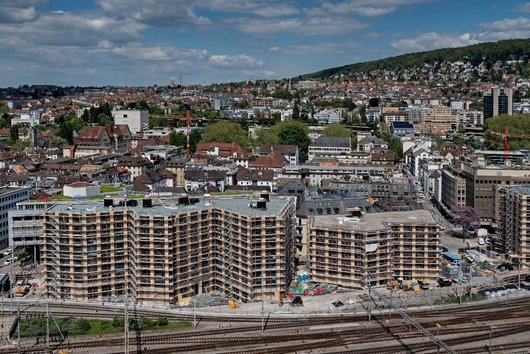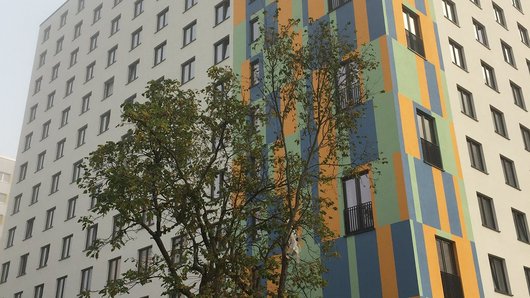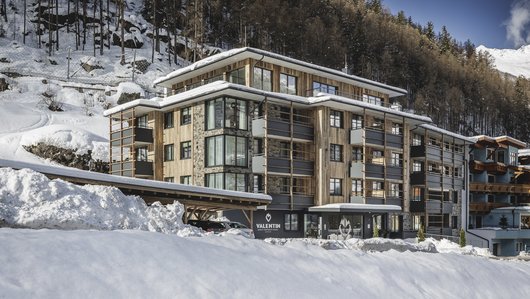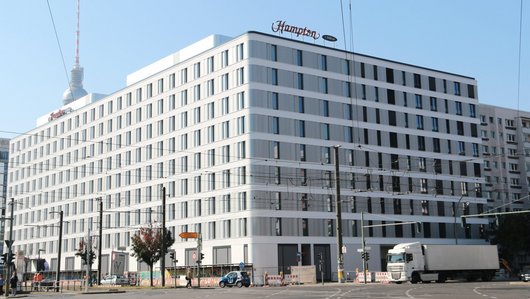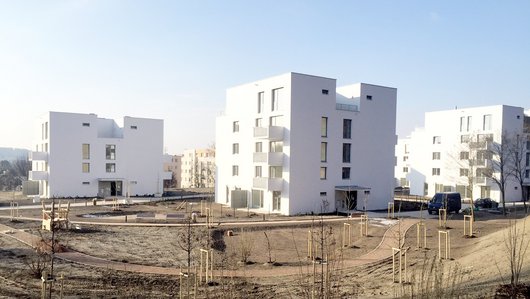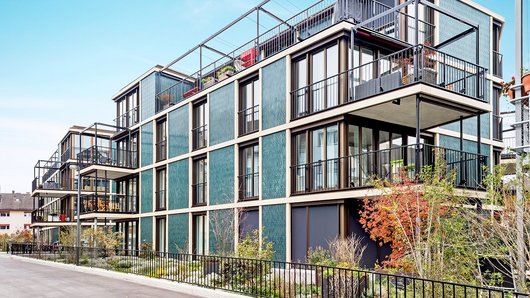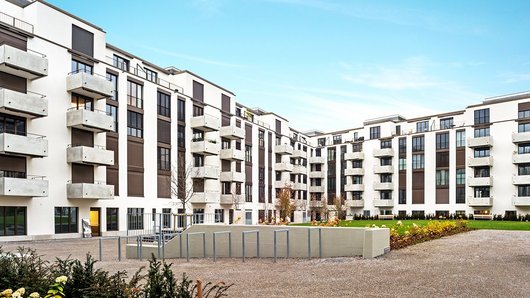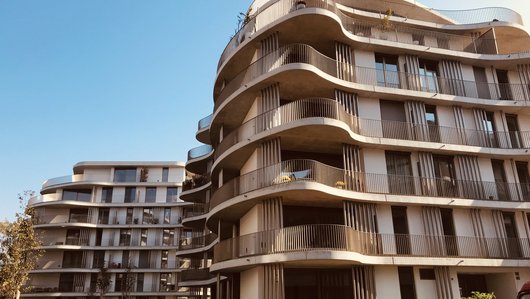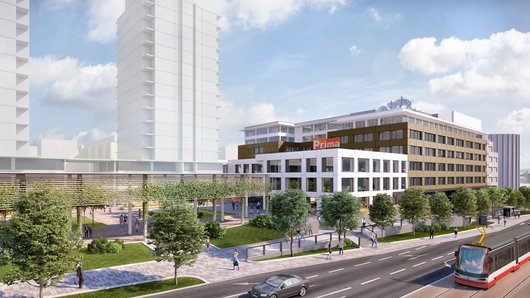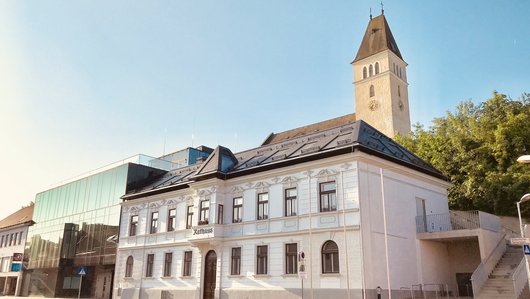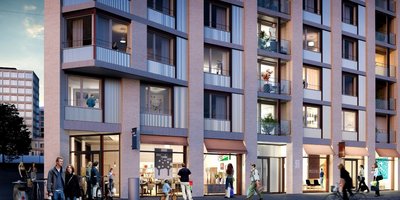
HB Nord – Gleistribüne
In the heart of Zurich, PORR is building a premium-quality residential complex boasting spectacular views.
As our cities become increasingly built up, construction companies face ever-growing logistical challenges. The Gleistribüne project required PORR to work in extremely tight conditions, while rail operations continued as normal.
-
EmployerSchweizerische Bundesbahnen SBB
-
ContractorPORR SUISSE AG
-
ArchitectEsch Sintzel Architekten GmbH, Zürich
-
Order typeTotalunternehmerin
-
Project typeBuilding construction . Residential building
-
Project scopePlanning and construction of three residential buildings with five to seven storeys
-
Order volumeCHF 60 m (EUR 53.9 m)
-
Construction start04/2017
-
Construction end08/2019
Overview
Swiss Federal Railways (SBB) has been working with the City of Zurich and Swiss Post since 2003 to give a new lease of life to one of the last large building plots in central Zurich. As part of this collaboration, SBB has been keen to emphasise the importance of making good use of inactive city centre sites previously used for rail operations – many other towns have also seen similar projects to transform industrial sites into attractive plots and develop them for retail, services and residential use.
PORR had previously worked on three construction plots in the “Europaallee” site opposite the Gleistribüne.
In 2017, these projects were followed by the contract to construct 139 rental flats in three apartment buildings with five to seven floors. The ground floor plans include retail spaces and commercial areas, as well as a restaurant with a bar and terrace. The contract also included the construction of a drinking water fountain, thereby continuing a centuries-old tradition: Zurich currently has 1200 fountains, one of the highest tallies for any city in the world.
The Gleistribüne is the capstone of the urban development projects rejuvenating the rail site around Zurich main station. The plans were drawn up by Zurich architects Esch Sintzel Architekten GmbH, based on the concept “Living next to Zurich’s central railway station with views of the tracks”. Construction was completed in August 2019.
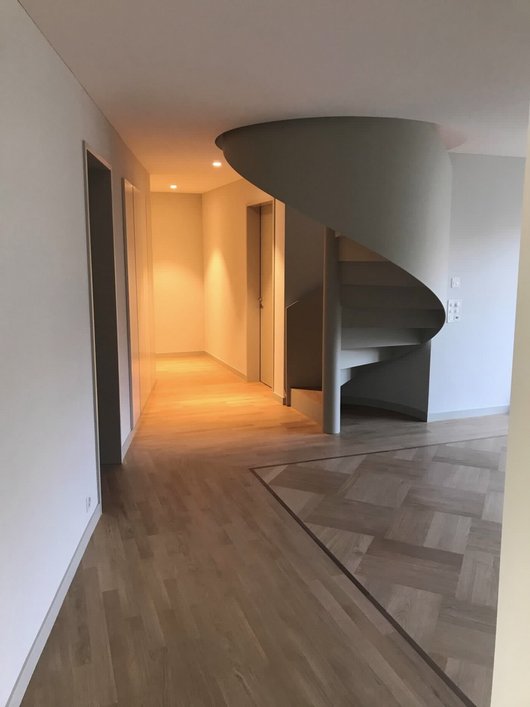

Shoring the construction pit,
securing the tracks
Given the restricted space conditions along the Zollstrasse, the designs called for a sheet-pile wall to seal the construction pit. By contrast with the neighbouring Gleisarena project, it was not possible to reinforce this construction pit, meaning PORR had to work instead with anchoring in the soil beneath the Zollstrasse. An S-Bahn tunnel running alongside the construction area and exposed on one side during the construction pit excavation was secured in position with diagonal HEB-profile props.
Building on experiences from other construction sites in the Europaallee
opposite, PORR successfully used vibratory hammers to drive the sheet-piles, using gravel from the nearby Sihl. The construction pit was fully dismantled after completion of the basement level.
For the safety of the overhead lines and passing trains, protective scaffolding was erected on bored piles installed specially for this purpose. This protective scaffolding met SBB’s strict requirements and was regularly serviced and checked for functionality.
The foundation is elastically supported over its entire surface to keep the transmission of vibrations and structure-borne noise from the nearby railway tracks to a minimum.
Foundations, basement level
Key areas of the building were built on shallow foundations with a continuous floor slab. In areas with high load concentrations, the shallow foundations were supplemented with strip foundations, individual foundations, and localised deeper foundations. The foundation is elastically supported over its entire surface to keep the transmission of vibrations and structure-borne noise from the nearby railway tracks to a minimum.
The floor slab and external walls of the underground level were constructed from waterproof tanking with class 2 impermeability. The basement level also supports the existing SBB tunnel and holds it in place.
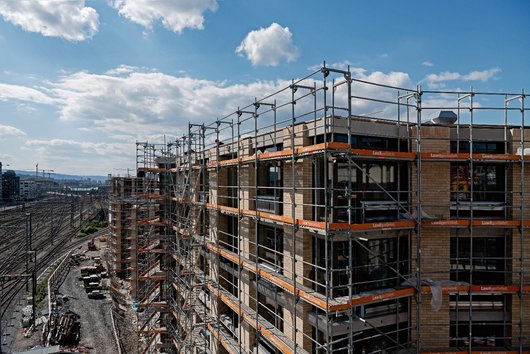

The complex load transmission system and variety of materials presented significant challenges for the facade construction.
Superstructure, facade
The building has a traditional skeleton superstructure. Its ceilings are constructed from in-situ reinforced concrete slabs. Vertical loads are transferred through reinforced concrete walling and columns. The columns are prefabricated components manufactured especially for this project. The building is reinforced against horizontal loads through cores in the vertical structures – stairwells, lifts, installation shafts, etc.
The building envelope itself has no structural support function. The transparent parts of the facade in front of the flats and the businesses on the ground floor are constructed from a metal post-and-beam framework, with opening elements such as windows and doors installed by means of extrusion profiles.
These elements, as well as thermally decoupled horizontal concrete elements in the roof and front area, are attached directly to the superstructure. The only elements that transfer loads directly to the foundation are the precast concrete clinker supports visible from the outside. These are connected to the carcass in the ceiling area of each storey. The precast elements were insulated on the inside, covered with clinker bricks on the outside, and delivered prefabricated to the construction site.
The complex load transmission system and variety of materials presented significant challenges for the construction of the facade. In addition, the scaffolding had to be rebuilt several times to allow prefabricated clinker facade elements to be lifted into place by crane.
Energy supply, plumbing
The Gleistribüne has 420m² of solar panels with a nominal capacity of 34kWp (kilowatt peak). This is expected to yield an average of around 35MWh of energy per year, which will be fed into the City of Zurich electricity grid. The primary energy source for heat generation is a groundwater source with four collectors installed beneath the building. Each collector pumps groundwater to a central heat pump, where the water is heated or cooled.
This heating/cooling system will supply the two office blocks in the Gleisarena complex in addition to the three Gleistribüne buildings. The direct hot water supply is also implemented via the heat pump. The hot water is stored in stainless steel containers and serves as the basis of the hot water supply. Drinking water is protected against legionella by a special control system which briefly heats the water above 60 degrees Celsius, and the building automation system ensures the heating periods are followed.
Technical data
-
Gross surface area21,421m²
-
Concrete incorporated12,000m³
-
Reinforced concrete installed1,100t
Summary
The Gleistribüne occupies one of the last brownfield sites in Zurich’s city centre. The five to seven storey residential buildings are an architectural highlight for the area surrounding the railway station and boast a spectacular view over the Swiss Federal Railway tracks.
